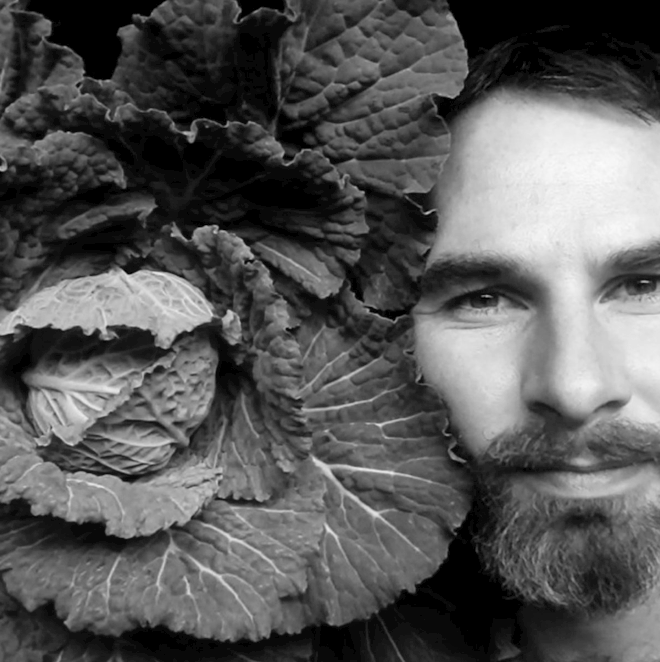ECOLOGICAL INTERACTION
OBSERVING ECOSYSTEMS AS INDICATORS FOR DESIGN
Seminar Faculty: Jonathan Minchin
As designers, architects and makers we often search for ways to ‘work with nature’, we may turn to nature based solutions, implement bioremediation strategies or choose to design for other species. Similarly we consider it good practice to design for local contexts and reference regional environmental conditions, the interventions we propose intend to favour the sustainability of holistic systems or to repair them. Each of these approaches follows a philosophy that positions ecology as a driver of design, and yet, to work with nature and other species with our designs we must first ask what does nature want? How can we be cognisant of change in dynamic systems, what tools can we use to read subtle traits or behaviours and what methods can we deploy to become responsive to these signals?

Credits: Valldaura NDVI Scan / Jonathan Minchin Noumena ROMI
In this context the ecological interactions seminar learns from the disciplines of biology, ecology and agricultural sciences to form our own applied systems of observation. We will explore tools and monitoring techniques at both macro and microscopic scales, searching from below to above ground. The seminar will encompass the cultivation of microbiomes and will use global satellite surveillance systems to identify meaningful indicators from the habitats we explore. The course will challenge perceptions of nature, draw on philosophy of past traditions and introduce concepts of the ecological optima and shifting baselines. Whilst building tacit and experiential knowledge through field work. Participants of the seminar will propose and diagramatise systems of observation and responsive design that inform land use changes. The systems they develop will make use of tools of observation to improve regional resilience for site specific contexts.

Credits: Boehringer poster representing the whole metabolic network
Learning Objectives
At course completion the student will:
- Acquire an understanding of various historical and changing land use paradigms, as well as their underlying philosophies and theories relating to human settlements.
- Gain an experiential and tacit understanding of biology research activities by taking samples and isolating microbial communities.
- Identify Indicator and model species as ways to read environmental health, finding the potential problems that ecosystems face through plant traits and species behaviours.
- Build an understanding of ecological linkages Monitor, map and record, both through direct observation and the use of digital surveillance and monitoring.
- Make hypotheses for design interventions and propose new and restorative metabolic pathways focusing on particular habitats.
- Form creative land use proposals that make use of designed observation strategies to inform a responsive design.
Faculty

Jonathan Minchin is a multidisciplinary designer and architect, working between the built environment, digital fabrication with a particular focus on rural contexts. He founded the Green Fab Lab at Valldaura Labs, IAAC Campus in Barcelona in 2013 and is currently the Project Manager of an EU Horizon 2020 program that develops tools for Climate Resilient Agriculture. (ROMI, Robotics for Microfarms.) He founded ‘Open Source Beehives’ in 2015 and directs the research organisation ‘Ecological Interaction’.
In the field ‘International Cooperation, Sustainable Emergency Architecture’ he has worked on housing and development projects alongside ‘UN habitat’ in Barcelona, ‘Habitat for Humanity’ in Costa Rica, ‘UNESCO’ in Cuba and with ‘Basic Initiative’ in Tunisia. He holds a particular interest in appropriate technology and local manufacturing. His writing on “Geographic referencing for Technology Transfer” was published in the book “Reflections on Development and Cooperation”. He has studied and taught in the Fab Academy, Bio Academy and setup the Zero Series workshops in Biology, Agro Ecology and Forestry. He has co-founded the Open Lab platform for technology transfer.
ecologicalinteraction.org
Twitter: @eco_interact